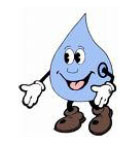The current cumulative deficit in Israel's
renewable water resources amounts to
approximately 2 billion cubic meters, an amount
equal to the annual consumption of watr of of the
State. The deficit has also led to the
qualitative deterioration of potable aquifer
water resources that have, in part, become either
of brackish quality or otherwise become polluted.
For nearly sixty years, Israel has been trying to
solve the country's water shortage problem and
has relied on technology. As a result Israel has
emerged as a global leader in developing water
purification, irrigation and desalination.
Israel has built the world's largest desalination
plant. Israel Desalination Enterprises, at full
production of 320,000 cubic meters a day, is
expected to supply15% of the country's water
needs. At $0.68 a cubic meter the price compares
favorably with international costs of water.The
company employs reverse osmosis technology
developed at the Weizmann Institute.
The agricultural market is fairly mature but
still growing steadily. Kibbutz Netafim which
invented drip irrigation in 1965 does about
$350m. in sales annually. Israeli
companies active in drip irrigation have achieved
about half of the estimated $1.5b. global market .
Mekorot Water Company Ltd. is a Government-owned
company and, as Israel's national water company,
is responsible for managing the country's water
resources, developing new sources and ensuring
regular delivery of water to all localities for
all purposes. Mekorot is in charge of the
wholesale supply of water to urban communities,
industries and agricultural users. Mekorot
produces and supplies about two-thirds of the
total amount of water used in Israel. The
remainder is provided through privately-owned
facilities.
Technologies are being developed in the field as
well as in the laboratory. Researchers at Ben
Gurion University are looking at ways to use
irrigation systems to cultivate fish, edible and
tropical in the desert. Some time ago IHTIR
visited a shrimp cultivation farm, all for
export. The company employed subterranean water
which was pure and mixed it with less pure water
to provide an ideal, nearly disease free
environment. Caviar is also being harvested and
is enjoying strong demand.
At the Technion Institute of Technology Professor
Desoretz is looking for ways to develop unique
ports to prevent agricultural spouts from
clogging.
Two of Israel's technological incubators are
dedicated to developing a variety of water
technologies. Magsens Ltd. in real time can
monitor water passingthrough water pipes. Using
magnetic fields, coupled with conductors it can
check for varied chemical substances that may be
dissolved in the water.
Veracon has developed a unique process for the
rapid treatment of industrial effluents
containing heavy metals. In factories it can
reduce the amount of industrial heavy metals such
as cadmium, copper and nickel flowing into our
environment.
Israel will continue to experience a water shortfall but
an ever greater percentage of water will be produced
by technology.
 A number of years ago, the scarcity of water in
the arid Middle East, nearly caused a war.
Lebanon attempted to divert the waters of the
Yarmuk River, one of the tributaries flowing into
the Jordan River.
A number of years ago, the scarcity of water in
the arid Middle East, nearly caused a war.
Lebanon attempted to divert the waters of the
Yarmuk River, one of the tributaries flowing into
the Jordan River.